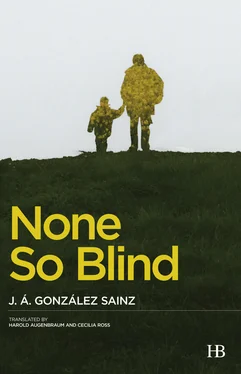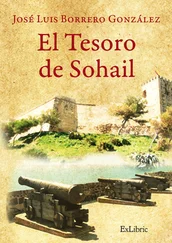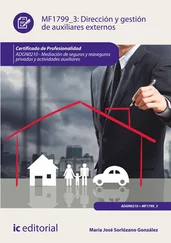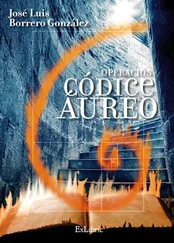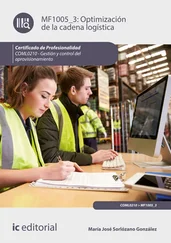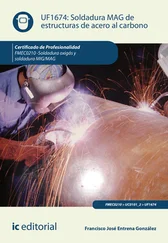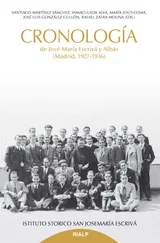“All I know, Abelardo, is that the person you’re calling a vermin of whatever sort — and I don’t really care about any of that and I never have — is a good man and an honest man through and through, incapable of doing anyone wrong, no matter what, and as a worker, and you know this better than anybody, he’s second to none. That’s what I know, and you know it, too.”
“Felipe, Felipe, I’m telling you, you’re playing with fire here, don’t push your luck now, just tell us where you’re hiding him, because in the end we’ll find him, and then where he goes, you’ll go, too, head first. Felipe, think about your wife and your son.”
“That’s what I’m doing, Abelardo, and I’m wondering if you’re doing the same.”
They took him. My mother, your grandmother — he told his son as they traveled in the train to Madrid — went out after them, screaming like a madwoman and clutching at Abelardo’s jacket, at Abelardo, our neighbor, the owner of the plot next to ours, where the poplars are now, pleading with him by all that he held dear to not hurt him, it was Felipe, Felipe, his neighbor, a man he’d known his whole life.
I’d stayed behind with my aunts and uncles next to the open door, he went on, I was crying and crying as hard as I could from seeing my mother screaming like that, and through my tears I saw her lying on the ground, lying there but still shouting, with her arm outstretched in the direction they were taking him, before she, too, broke into a fit of sobbing I will remember the rest of my life.
I quickly jumped from my uncle’s arms — he’d been restraining me as best he could — and I went running to her. I don’t know how the word could have popped into my head or where I’d gotten it from, I must have been barely nine years old, but I said it, shouted it, rather, or I shouted it at them before bursting into tears again, because my aunt had sped straight after me and slapped her hand over my mouth. Murderers, I shouted, murderers, and the whole village, hidden behind half-closed shutters and barely-cracked balcony doors, heard it and will always remember it. The child who called them by their true name, they said.
Since then, he continued, I think I’ve always had that hand of my aunt’s covering my mouth, and that unspoken desire to break into a run and shout all the things that are exactly what words sometimes say they are. But at the same time, and above all, what I’ve also always had, what has always been with me, what has never stopped stalking me, hounding me, without my being able to undo the ties that bind me to it always, constantly, without a moment’s peace, without being able to look behind me or ahead of me, or outside, or even, would you believe, inside my own house, is that dread, that dread like a deer caught in the glow of a smile I think I can recognize as clearly as a metal detector locates ancient coins or spear tips under a layer of earth. A fear whose snake I have, perhaps as a result of wanting so badly to run away from it all and pretend like it had nothing to do with me, allowed to hatch from within my very insides.
What happened next? What happened next you already know, he went on telling his son on the train. Paco, the Straightedge — that’s what they nicknamed him, because he couldn’t live with even a single crooked furrow and would drive the plowshare back in again and again and as many times as it took for it to come out as straight as he wanted it, that was the man’s obsession — was found in a sort of low cellar, very well hidden, that my father, your grandfather, had made for him under the shed in the field, which now just holds a bunch of old junk. They turned everything inside out, they took some of the baled hay and burned it there in the dead of night to light up the area, it must have made one devil of a pyre, until they finally found the hideout. They must have exchanged some words there, although nobody can know what was said, and then they took him and my father, may he rest in peace, back along the road.
At the spot where you can turn and go down to where the henbanes grow, but on the opposite side, if you’ve noticed, there’s a path that goes up the hillside. I’ve never taken it, but if you follow it, after about an hour of walking you’ll come to the top of Pedralén. That’s the path they turned off onto, and when they got to the top, at the very highest point of the promontory, and it had to have been first light by then, they set them up at the edge of the cliff, and with no further ado they started tossing them off, one by one, the two of them — Paco and my father — and three other poor, unfortunate souls they had brought up from the village. Those are the names chiseled on that cross they put up in ‘77, the names of those four people and your grandfather, whose name is the same as mine.
He didn’t say mine and yours , he only said mine , and then he spent practically the rest of the trip in silence, as if his aunt had slapped her hand over his mouth again.
19
After a time, a time that, despite its sitting there right in front of his eyes, ticking itself out on the clock in the perfectly appreciable movements of its two hands, he wouldn’t have been able to say at first whether it felt infinite or was perhaps just a single instant drawn completely out or perhaps contracted to its smallest possible expression, Felipe Díaz Carrión saw the door in the middle of the wall before him open, and immediately afterward there came a pair of guards who each instantly took up a post to either side of the door, followed by a pair of off-white sneakers poking out from under the somewhat frayed hems of a pair of worn jeans. He watched the sneakers come in, he watched them approach the other side of the glass in which his own image was reflected, but he suddenly lacked the courage to raise his eyes, to impart even the slightest movement to his eyelids that would allow him to finally look him in the face and see his eyes, in case they now had, or, rather, still had, that expression that had been haunting him an entire lifetime, making it impossible for him to erase it from his imagination or get a moment’s peace, that expression that emerged from the past and had returned to hem in the present and was not simply presumptuousness or disdain, nor merely annoyance or defiance, but instead, and in addition to all that, disgust, rancor, bitter repugnance, and foolish repulsion, all crowning the grotesque emptiness of what they cruelly believed to be not only beyond good and evil but beyond any single limit, as confusing or changeable or skittish as it might be.
“What’s this? You don’t even have the guts to look at me, or what, you halfwit?” his son spat at him suddenly.
And then, gradually, as if that slight movement of eyelids required an enormous dose of an energy that he would never be able to fully muster, he raised his eyes, he lifted them little by little from the spot where the sneakers he saw come in were, although he could no longer see them, up to the worn jeans, then to the belt buckle, and the wool sweater, and when he finally got to his eyes, but even before then, in the angle of his chin, the sneer on his lips, he knew what he had perhaps never stopped knowing, no matter how much he might have wished not to know or believed he didn’t — namely, that there was nothing to be done, there was no possible way out and no going back, regardless of how little he was able to explain it to himself or perhaps even admit it to himself, and that by virtue of all that, and by virtue of all that was at stake for him, he was irredeemably condemned.
His image in the glass that halved the room where it seemed only time alone dwelt was superimposed on that of his son, his resigned, melancholic expression superimposed on the other’s dismissive repugnance, which was now, once again, opening its mouth and, with fingers interlaced in a gesture that had already been engraved on his memory—“What’s with you? Cat got your tongue?” he’d said to him — mockingly inquiring whether he wasn’t going to dish him out one of his bullshit, preachy, hopelessly fascist spiels.
Читать дальше
